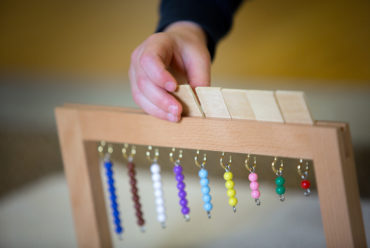End the “Good Job” Crisis with These 3 Secrets
While I was having dinner at a local family restaurant the other night, I couldn’t help but observe two moms, clearly close friends, and their clan of five small children crammed into one booth. As the mothers sat and had a conversation it was clear that their attention was not on the children. One mom became frustrated when the three year-old boy kept interrupting their conversation.
As I observed, I cringed at the words I heard, as if they were screeching nails on a chalkboard: “Girls, tell him he did a good job.”
When the girls did not respond to their mother’s request, she repeated it multiple times (screech, screech, screech!). The end result was a frustrated mom, disinterested little girls and a “happy” three-year-old? Clearly not the outcome the mother was hoping for but hey, at least he received a “good job” and all was quiet again at the table. After all, that is what the mothers were seeking right?
My mind started spinning with questions as I tried to enjoy my meal.
Why do we so often believe that children have to hear the phrase “good job?”
Why must we tell a child yearning for attention “good job” just to give him the instant gratification of hearing he did a good job when in fact maybe he didn’t do a good job?
What truly is a “good job?”
Why does my opinion matter?
What is society coming to where children have to be praised just to shut them up?
I say we’re having a “Good Job Crisis!” So, what can we do to fix this problem? In my experience as a Montessori teacher, I have seen simple changes in language help the child to intrinsically decide if they have done a good job. These are the top three “secrets” that I put to use in my classroom and encourage both parents and other educators to do the same.
- Ask Questions.
“What do you think about your picture?” Find out how they feel about the art project, situation or behavior. Adults so often shape children into what we think they should believe, when in reality they truly are capable enough to decide for themselves if they feel successful. As parents, it may be tough to ignore the pestering child who wants instant gratification, but if we go back to the dinner disaster, a quick question could easily have enhanced the conversation, produced a more supportive outcome and left the entire table less annoyed at being ordered around. - Be Quiet and Let Them Explain.
Sometimes saying nothing can be crucial. This alternative can go in hand with asking a question and simply waiting for a response without passing judgment. Let the child explain himself. Whether it is their description of artwork, or their reasoning behind a choice they made, let the child’s mind do the work and support their own success with a smile. - Replace “Good Job” with Other Words.
This won’t take on perfection the first time around, or the second or third for that matter. You must practice your language. Below are some examples on how to start changing your vocabulary today. Pay close attention to the verbiage in bold and start applying them in your life.
NO: “Great job cleaning your room today, Billy!”
YES: “I like how you organized your shoes in your closet.”
YES: “I notice that you put your video games back in the basket.”
NO: “Good job at mashing those potatoes, it must have been hard work.”
YES: “Thank you for helping make dinner.”
YES: “I acknowledge you for making the mashed potatoes for dinner tonight.”
NO: “You did a really good job on your science fair project!”
YES: “What was your favorite part about your project?”
YES: “I see you put a lot of detail into your presentation board.”
If this all seems like a huge undertaking, you are right, it is! It’s not easy for many of us who have grown up as “praise junkies,” to then change our language to shape our children differently. Now, I am not saying that all praise is bad because we are humans and we all like to be recognized. And while you practice these “secrets”, know that it won’t be easy, but it will be worth it! Children need to learn that they are doing for themselves and not always for the gratification of others.
So, how are you going to put an end to the “Good Job Crisis?” I want to challenge you to start with one simple phrase to replace “good job.” Share your journey with us and let us support one another through our triumphs and struggles as we put an end to the “Good Job Crisis.”










Loved your article. Sounds a lot like chick moorman’s philosophy. I’ve heard him speak at our montessori at least 5 times. We took “good job” out of our vocabulary years ago & use descriptive praise instead. Works great! !!
Thank you, Meghan! I love Chick Moorman as well. So glad to hear that you are using descriptive praise with your kiddos, it can truly work wonders!
Absolutely Amanda! Its almost as if kids get “addicted” to hearing Good Job and the feeling of outside acceptance. I want my children to be able to look inward at themselves and decide if they did a “good job”. Minimizing saying the words good job allows my children to do this and will hopefully decrease peer pressure as it will create confidence in choices they made.
I love your suggestions on wording. I would add a suggestion how to start…,become aware of how many times you say or want to say Good job with tally marks on a paper first. Sometimes you don’t hear the words you are saying until you’re listening for them.
Thank you for the article.
I love your idea of tallying Nettamara! Thank you for checking out our blog and sharing your idea as well. We want to make it as easy as possible for parents to implement Montessori with their children at home.
Thank you Amanda for this article! It’s something we have worked on hard for our daughter – I don’t think we’ve praised her once. She’s 2 and 3 months now and happy, confident, securely attached with many words in her vocab! 🙂
I had a couple of questions about your examples… Is “I like how” giving approval, even subtle praise in a way? Should we say “I can see you have” instead or doesn’t it matter?
Also I noticed in the mashed potato example you didn’t keep the acknowledgement of effort. Is this important to maintain?
Wow! That is amazing that you have started so early and it must just be incredible to see her confidence shine!I would say in most cases it would not matter if you use “I like how” or “I can see you have.” In essence, we are still relaying the same message to the child. This article only gave a small look inside using descriptive praise over evaluative praise. There are definitely many more options that could be used. I would recommend picking up the book Parent Talk by Chick Moorman. I have attached a link for easy access to his website. http://www.chickmoorman.com/parentToolsBody.html
I totally agree! It’s a difficult habit to get out of, but pointless praise is, well … pointless. Furthermore, parents (not unlike me before I found Montessori) typically like to dish out these praises at the most inopportune time — when the child is concentrating.
This could just as easily apply to adults in the workplace; how many of us suffer under hearing great job in one breath, and then get told we’re failing in the next (maybe I’m alone here)? Unless it is true and valid, I’d rather not hear it in the first place. It sends mixed messages that can be difficult for even adults to decipher, much less kids!
Thanks Amanda! Sometimes instead of saying GOOD job, I will say “I can see you worked really hard on that” honestly I don’t know why this is in all caps. Sorry!
I love that Kelly. And the caps, well they must have just been meant to be! 😉